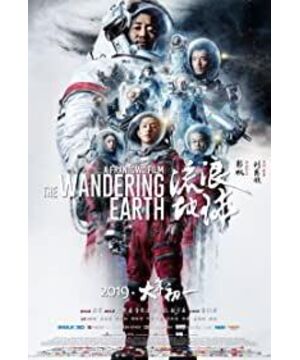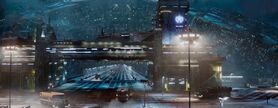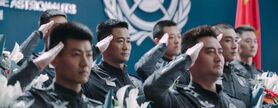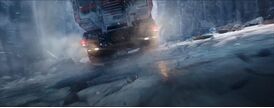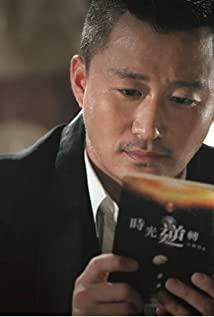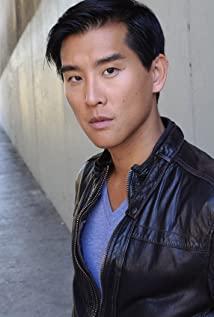On the first day of the first lunar month, I watched "The Wandering Earth".
When the subtitles from the production staff were finished, the lights in the theater were turned on, and a few people were still sobbing around. This was a scene I had never seen in watching a movie in all these years. When I came out of the theater, my thoughts were rolling and I couldn't help myself. I thought of the slogan of "March into Science" in middle school, and the students' fascination with science fiction writers such as Zheng Wenguang, Tong Enzheng, and Ye Yonglie. I thought of Qiu Yuefeng and his starring "Death on Coral Island", which was his last swan song and the only domestic sci-fi movie in a long time. I think of the sudden silence of Chinese science fiction in the 1980s, the hard work of Science Fiction World in the 1990s, and the silent accumulation of new generation of science fiction writers.
I also thought of "Wen Wei Po". Entering the new century, I began to come into contact with Liu Cixin's works. I was very excited at the time. I still remember the feeling very clearly, that is, Chinese science fiction has been saved. I wrote an article introducing Liu Cixin's work, called "New Hope", which was published in Wen Wei Po in March 2003. This title is a subtitle of the earliest "Star Wars", which means that Liu Cixin is like Luke Skywalker in the film, bringing new hope to people. At the end of the article, it said: "From "Wandering Earth", "Micro Era" to "Supernova Era", the world has taken shape and is becoming more and more full. We have great hope for Liu Cixin." This is probably also the reference to "Wandering Earth" in domestic newspapers " first article. 16 years later, Liu Cixin has become a household name. Chinese science fiction has turned the world upside down and changed the world. This New Year's film "The Wandering Earth" is like a rainbow and has a good reputation. The box office exceeded 2 billion in one week after its opening. If Liu Cixin has raised Chinese science fiction to the world level, then this film is to raise the industrial production of Chinese science fiction films to the world level.
The plot in the film actually has little to do with the original novel, but its world setting is largely derived from the original novel. The overall picture, atmosphere, and rhythm faithfully reproduce Liu Cixin's aesthetic style: grand, heavy, cold, cruel, precise, hard. Like many of Liu Cixin's works, human beings are facing an unprecedented crisis of survival. The sun is about to flash, the climate changes drastically, the atmosphere gradually disappears, the glaciers melt, the world map is redrawn, and the earth is transformed into a Noah's Ark by 10,000 huge planetary engines. On this basis, the film draws lifelike scenes one by one: space stations, dungeons, supply stations, ignition centers, large vehicles... All kinds of visual wonders are coming without interruption. The most striking thing about these spectacles is not how strangely strange they are, but how recognizable they are in their strangeness. When the elevator in the underground city was close to the surface, we followed Duoduo's eyes to see the Guomao Building, China Merchants Building, and CCTV Building that remained after the disaster. On the way back, we saw Jinmao Center, World Financial Center, Oriental Pearl Tower. We see another form of these landmarks, another possibility. A glimpse of this possibility is the very essence of literature and art. You can understand it as a warning to the world, a treasure of the wind and the moon, or a passage from Lu Xun's "Tomb Text": "When Haoge is crazy, he is cold; he sees the abyss in the sky. In all eyes, he sees nothing; in There is no hope for salvation."
In 2011, Professor Wang Dewei of Harvard University gave a speech titled "From Lu Xun to Liu Cixin" at Peking University, interpreting Liu Cixin's sci-fi world with Foucault's "heterotopia" concept, and put him in the beginning of Lu Xun's science fiction world. Chinese modern literature continues to break through its own imagination space traditionally. Heterotopia is a space setting for dealing with crises. This space is isolated but needed. It reflects the desires or fears of a society and forms a subtle tension that is both symbiotic and distanced from mainstream power. We can see right away: The Wandering Earth is a giant heterotopia. This is the earth we are most familiar with, and it is the earth that we are extremely unfamiliar with. This alternative earth makes us vigilant and re-examine our relationship with the environment.
Some people may disapprove of comparing Liu Cixin with Lu Xun, but the potential relationship between them may be beyond our imagination. In a sense, Lu Xun is also one of the pioneers of Chinese science fiction. As early as 1903, he translated the French science fiction writer Verne's "Journey to the Moon", and he had high hopes for the enlightenment significance of "science fiction". It must start with science fiction." Lu Xun's "New Story", according to today's definition, can also be classified into the category of science fiction. It is a pity that after the May Fourth Movement, science fiction has a tortuous road and a difficult fate. If Lu Xun knew about the hit of "The Wandering Earth" today, he would be very pleased. Lu Xun's style is grim, he is not a blind optimist, he is full of doubts about the future "Golden World". Liu Cixin's "dark forest" law can be seen as a cosmic upgrade of this "suspicious" way of thinking. As a Chinese New Year film, "The Wandering Earth" has deleted some of the heavier passages in the original script, but the grim and grim tone can still be seen everywhere. Only some people on earth can enter the dungeon to live. This qualification is obtained by drawing lots. This is fair and cruel. Liu Qi's mother lost the chance to survive because of this. Such ethical choices are not uncommon in Liu Cixin's works, but there are few precedents in previous Chinese literature and films.
However, Liu Cixin, like Lu Xun, did not give up hope for mankind. "The Wandering Earth" contains some of the most central motifs in Liu Cixin's works. He firmly believes that human beings must go out of the solar system, just as they must go out of Africa, and they must go through the era of great voyages and colonization, so as to obtain new living space and avoid destruction. Evolving. The future of mankind is the sea of stars. But you have to have that awareness first, and that's what science fiction is all about. Moreover, you have to let more people know about this science fiction, which is the meaning of the movie "The Wandering Earth".
Why is everyone more and more interested in science fiction? In fact, people have always liked fantasy, so there are myths, religions, and literature. But people are not satisfied with fantasy and long for reality. People are becoming more and more rational and mature, and the previous fantasy can no longer meet the spiritual needs of modern people, so people are always looking for new forms of fantasy. Today, this new fantasy form has taken shape, and that is science fiction. In the past, people believed in God, and now people believe in science. What they have in common is that they can provide people with comfort and hope, but the comfort and hope of science are more real and credible than the gods of the past. In this sense, science is not only a modern God, and more powerful than the old gods. Science fiction is the best carrier of scientific myths, or a combination of old myths and new science, and will increasingly become the dominant myth of mankind.
Regarding the meaning of science fiction, Liu Cixin wrote about it as early as 1999 in an article "SF Teaching - On the Description of the Universe in Science Fiction". People need some spirit, comfort, sustenance, and transcendence, which can be embodied in science fiction as immortality, transmigration, spiritual uploading, earth wandering... This sounds like it is going back to the old way of old myths, It's actually new wine in an old bottle, and that's science. You must know that science is becoming more and more magical today. For example, superstring theory tells us that the universe has 11 dimensions. Computers can beat the best human chess players. Many scientists in many laboratories around the world are tirelessly developing longevity. Elixir. Bottom line: Sci-fi is becoming more and more realistic, and reality is becoming more and more sci-fi. In this new myth, science is playing an increasingly important role, providing an empirical basis for belief and hope. This is also the core password of why Liu Cixin and "The Wandering Earth" are so popular. Liu Cixin writes hard science fiction. He can seamlessly connect the wildest imagination with the most cutting-edge science, and use high-density details to rivete these two major sectors. This is his strength that is difficult to be copied by others.
I'm glad that Chinese science fiction has chosen Liu Cixin, a more rigid sci-fi genre, and I'm also glad that Chinese audiences chose "The Wandering Earth" this Spring Festival, which is a good starting point. It is conceivable: after this, there will be many practitioners who will follow up with Yiwofeng. They may not be able to easily surpass Liu Cixin's existing heights, but if they can retain some respect for science and details, I will be very satisfied. The higher the building, the more solid the foundation needs to be. The farther the fantasy flies, the stronger the logic supporting the fantasy needs to be. We need hope too much, and we need science too much.
In the class in the dungeon at the beginning of the movie "The Wandering Earth", the monitor played back the answer the teacher needed like a gramophone: "Hope, it's something as precious as a diamond in our age." However, after coming to the world on earth, after a cruel journey, experiencing destruction and death, Duoduo finally understood the meaning of hope. We also understand the meaning of science fiction: science fiction is a hope.
View more about The Wandering Earth reviews


